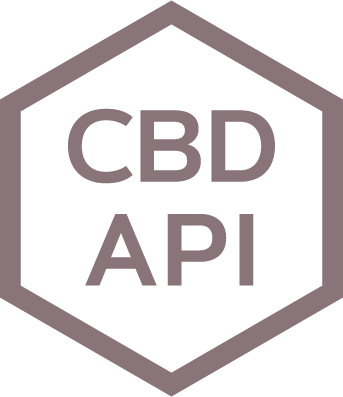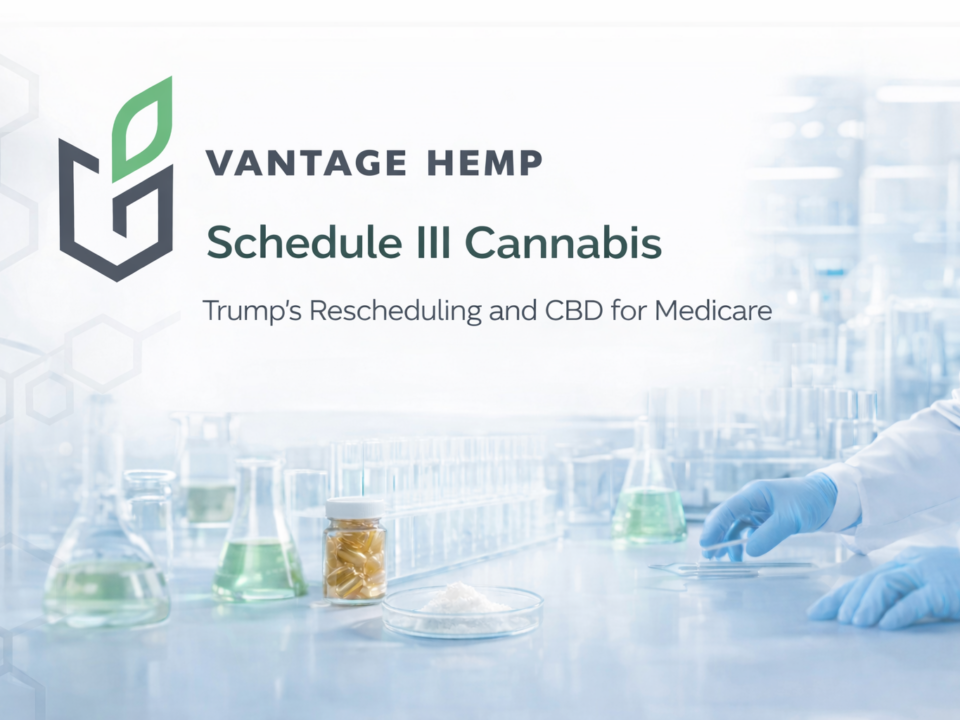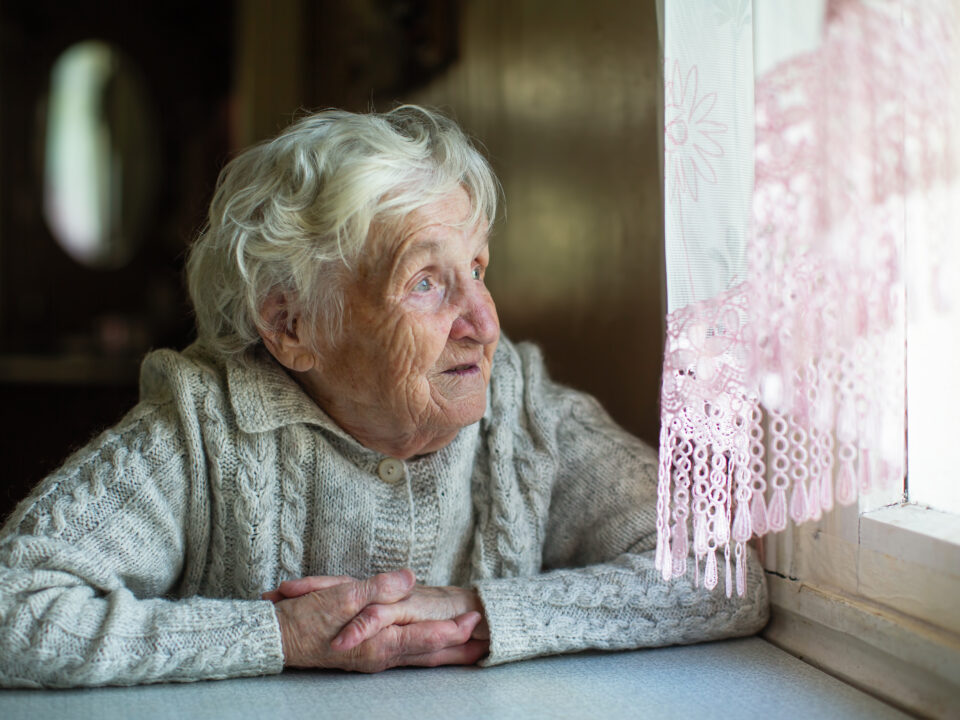
Sourcing CBD APIs: Challenges for Commercial and Clinical Use
July 18, 2025
Cannabidiol – Alzheimer’s Clinical Trials
July 24, 2025CBD and Sleep in Trauma Recovery: An In-Depth Review
Introduction
Sleep disturbances are common and debilitating in patients recovering from trauma, including those with post-traumatic stress disorder (PTSD). Poor sleep quality exacerbates trauma-related symptoms and impedes recovery. Cannabidiol (CBD), a non-intoxicating component of cannabis, has gained attention as a potential aid for improving sleep and facilitating trauma recovery. Enthusiasm for CBD stems from both patient anecdotes and a growing body of scientific research. This review examines the pharmacological basis of CBD’s effects on sleep, its pharmacokinetics, and the latest clinical evidence – including international trials – in the context of trauma and PTSD. A neutral, evidence-based perspective is maintained to inform medical professionals about the current state of knowledge.
Pharmacology of CBD: Mechanisms of Action
CBD exerts its effects via a complex pharmacology that is distinct from the psychoactive cannabinoid THC. It has low affinity for classical cannabinoid receptors (CB₁ and CB₂) but modulates the endocannabinoid system indirectly. For example, CBD can inhibit the breakdown of the endocannabinoid anandamide, leading to higher endocannabinoid levels that may enhance stress coping and fear extinction[1][2]. CBD also interacts with non-cannabinoid receptors: it acts as a positive modulator at serotonin 5-HT₁A receptors and TRPV1 receptors, mechanisms linked to its anxiolytic and analgesic properties[3][4]. These receptor interactions help explain why CBD might reduce anxiety, hyperarousal, and pain – symptoms that often disrupt sleep in trauma patients. Notably, in vivo studies suggest CBD can promote fear-extinction learning. For instance, a VA-led study hypothesized that CBD would enhance extinction of fear memories in PTSD by targeting these neural pathways[5][6]. In summary, CBD’s multi-modal pharmacology – spanning endocannabinoid, serotonin, and inflammatory systems – provides a rationale for its therapeutic potential in improving sleep and ameliorating trauma-related neuropsychiatric symptoms.
Pharmacokinetics and Safety Profile
Understanding CBD’s pharmacokinetics is crucial for clinical use. CBD is typically administered orally in oils or capsules; oral bioavailability is relatively low (~6–10%) due to first-pass metabolism[7][8]. Peak plasma concentrations occur 2–4 hours after ingestion. CBD is highly lipophilic and distributes widely into tissues (including the brain and adipose tissue), resulting in a long elimination phase. With chronic daily dosing, the effective terminal half-life of CBD can extend to 2–5 days[9][10]. (After long-term dosing, one analysis estimated a terminal half-life >134 hours[11].) CBD is primarily metabolized in the liver by cytochrome P450 enzymes (especially CYP3A4 and CYP2C19), which creates potential drug–drug interactions. For example, CBD may raise levels of concomitant medications metabolized by these enzymes, warranting caution in patients on agents like warfarin or anti-epileptics.
In terms of safety, CBD has a favorable profile. Unlike conventional sedative-hypnotics or opioids, CBD does not produce euphoria or dependence, and the World Health Organization reports no significant abuse potential. Adverse effects are generally mild; in clinical trials even high doses of 300–600 mg/day were well tolerated, with no serious adverse events attributable to CBD[12][13]. Common side effects can include fatigue, gastrointestinal upset, or changes in appetite, but these are often dose-dependent. Importantly, trials so far have not observed the respiratory depression or next-day impairment seen with many sleep medications. This safety profile makes CBD an appealing candidate for patients with trauma, who often cannot tolerate additional sedation or cognitive side effects from medications.
CBD and Sleep Physiology
Improving sleep architecture – not just total sleep time – is a key goal in trauma recovery. Emerging evidence suggests CBD may enhance the restorative stages of sleep. A recent randomized, placebo-controlled crossover trial assessed an oral CBD-terpene formulation in 125 adults with insomnia[14][12]. Participants received 300 mg of CBD combined with low doses of eight terpenes (e.g. linalool, myrcene, limonene) nightly for 4 weeks[14]. The results showed a modest but significant improvement in deep (slow-wave) plus REM sleep: on average, CBD increased the proportion of night spent in these restorative stages by ~1.3% (SE 0.6%, P = 0.03) versus placebo[12]. This translated to some individuals gaining up to 48 extra minutes per night of combined slow-wave and REM sleep over the month of treatment[12][15]. Notably, benefits were most pronounced in those who had the poorest baseline sleep quality (e.g. severe insomnia). Equally important, no adverse events were reported in this trial[16][13].
These findings align with patient anecdotes that CBD can promote more “restful” sleep. Unlike sedative drugs (benzodiazepines, Z-drugs) that can reduce deep and REM sleep, CBD’s mechanism appears to preserve or even augment these critical stages. For example, the insomnia trial’s formulation increased slow-wave and REM sleep by nearly an hour per night in severe insomnia patients[17][18]. Clinicians have long observed that trauma survivors often experience fragmented sleep with frequent nightmares. By extending deep and REM phases – which are linked to emotional memory processing – CBD might help consolidate sleep and reduce nightmare frequency. Indeed, an early case series of PTSD patients reported that adjunctive CBD treatment was associated with fewer nightmare episodes and improved overall sleep quality[19][20]. Patients in that series showed a 91% reduction in mean PTSD symptom severity scores over 8 weeks of CBD use, with sleep improvement cited as a major contributor[19]. Such real-world reports, while uncontrolled, are fueling further research into CBD as a novel sleep aid in trauma-exposed populations.
CBD in Trauma Recovery: Clinical Trials and Findings
CBD for PTSD and Memory Processing
Beyond sleep symptoms, CBD is being actively investigated for direct effects on PTSD pathology. One intriguing area is memory reconsolidation – the process by which memories, including traumatic memories, are re-stored and potentially modified after recall. Researchers at the University of Texas at Austin have been studying whether CBD can disrupt the reconsolidation of fear memories. In a controlled experiment, they administer a single 300 mg dose of broad-spectrum CBD oil to participants after reactivating a traumatic memory, to see if it lessens the intensity of the memory when recalled later[21][22]. The rationale stems from preclinical findings that CBD can dampen learned fear responses, possibly by interfering with amygdala and hippocampus activity during reconsolidation. Although full results are not yet published, this line of research could explain a mechanism for CBD reducing flashbacks and intrusive memories in PTSD.
In parallel, a Phase II randomized trial led by UT Austin’s psychology department is evaluating an 8-week CBD treatment in PTSD patients, independent of therapy[23][24]. This trial is comparing CBD isolate vs. broad-spectrum CBD vs. placebo (each at 300 mg daily) in 150 adults with PTSD[25][24]. The primary outcome is change in PTSD symptom severity (Clinician-Administered PTSD Scale and PTSD Checklist scores). Secondary measures include depression, anxiety, and quality of life indices[26][27]. This study – among the first large placebo-controlled trials of CBD for PTSD – will provide high-quality data on whether CBD alone can alleviate core PTSD symptoms. If positive, it could validate CBD as a monotherapy for PTSD, offering a non-addictive alternative to current pharmacotherapies (such as SSRIs or prazosin).
Another innovative approach is using CBD adjunctively with psychotherapy. A VA San Diego trial led by Dr. Mallory Loflin is combining CBD with prolonged exposure (PE) therapy in veterans with PTSD[28][29]. In this study, 136 veterans undergo standard PE therapy for several weeks, and half receive CBD capsules (oral CBD) before each session while half receive placebo[28][5]. The hypothesis is that CBD’s anxiolytic properties will make it easier for patients to engage with trauma memories during therapy and accelerate extinction learning – essentially helping patients “unlearn” maladaptive fear responses[5][30]. Additionally, CBD may reduce common impediments to PTSD therapy such as insomnia and hyperarousal, thereby improving treatment retention[5][6]. If the adjunctive CBD proves effective, it would exemplify a synergistic approach: using a pharmacologic agent to enhance the efficacy of gold-standard trauma-focused psychotherapy. As of this writing, the results of the CBD+therapy trial are pending, but the study reflects a broader trend of integrating CBD into comprehensive trauma care.
CBD for Pain, Inflammation, and Physical Trauma Recovery
Traumatic injuries often involve not only psychological stress but also acute physical pain and inflammation – both of which can disrupt sleep and prolong recovery. CBD’s well-documented analgesic and anti-inflammatory effects have led to trials in trauma surgery and rehabilitation settings. In Canada, a major Phase II trial known as CAM-POT (Cannabidiol After Multi-Trauma for Pain and Opioid Therapy) is underway to test CBD in patients with serious orthopedic injuries. This triple-blind, placebo-controlled trial (225 participants) is evaluating whether one month of CBD can improve acute pain outcomes after a long-bone fracture (e.g. femur or tibia)[31][32]. Patients are randomized within a week of their injury to receive either 25 mg CBD twice daily, 50 mg CBD twice daily, or placebo, alongside standard care[33][34]. The primary endpoint is pain reduction at 1 month, but secondary outcomes include inflammation markers, opioid consumption, sleep quality, mood, and functional recovery[35][36]. The rationale, published in the trial’s protocol, highlights that current pain treatments like NSAIDs and opioids have downsides (delayed bone healing, risk of non-union, and addiction risk)[37][38]. CBD, in contrast, is non-addictive and non-sedating, and in animal models it even appears to promote bone fracture healing[4][32]. Early data from this Canadian trial (Montreal) have not yet been released, but expectations are that CBD will show a decrease in inflammatory cytokines and pain scores relative to placebo, which could indirectly benefit sleep in these trauma patients. By controlling pain at night and reducing inflammation-driven discomfort, CBD may allow for deeper, more continuous sleep during the critical healing period.
It is worth noting that the anti-inflammatory action of CBD observed in preclinical studies supports these clinical efforts. In an influential mouse study, a CBD-derived compound given after experimental traumatic brain injury significantly blunted neuroinflammation and improved neurological recovery[39]. Mice treated with the CBD-like drug had reduced levels of a key inflammatory protein in the brain and showed better outcomes after head trauma[39]. This finding, first reported by researchers in Israel, underscores CBD’s potential as a neuroprotective agent in trauma – providing a mechanistic basis for the improved pain and functional outcomes being sought in human trials.
CBD and Traumatic Brain Injury (TBI)
Patients with traumatic brain injury often suffer from cognitive impairments, sleep-wake disturbances, mood swings, and chronic neuroinflammation. Preclinical research indicates cannabinoids (including CBD) may mitigate these sequelae via neuroprotective and anti-inflammatory pathways[40][39]. Translating these findings to humans, clinical researchers in the U.S. have initiated trials to assess CBD in TBI-related conditions. For example, a Colorado-based study is examining full-spectrum vs. broad-spectrum CBD in adults with post-concussion syndrome and persistent TBI symptoms[41][42]. The goal is to determine if daily moderate doses of CBD can improve cognitive function, sleep quality, mood, and overall quality of life in this population[43][44]. Although results are still forthcoming, the choice to include both full-spectrum CBD (with trace other cannabinoids/terpenes) and broad-spectrum (THC-free) reflects an interest in whether the “entourage effect” confers added benefit for TBI.
Case observations lend cautious optimism. In one open-label program for patients with anxiety (some of whom had comorbid brain injury), a high-CBD hemp extract taken over 8–12 weeks led to concurrent improvements in sleep quality, mood, and cognition[45][46]. Patients reported significantly better sleep on the Pittsburgh Sleep Quality Index and higher quality-of-life scores, alongside stable or improved performance on cognitive tests[45][47]. While this was not a controlled TBI-specific trial, it suggests that CBD’s benefits in reducing anxiety and improving sleep might translate into secondary cognitive gains – a relevant consideration for TBI care. If ongoing randomized trials confirm that pharmaceutical-grade CBD can safely enhance sleep and neurobehavioral outcomes after TBI, it could pave the way for integrating CBD into neuro-rehabilitation regimens. Given the lack of approved pharmacological treatments that improve long-term TBI outcomes[48][49], a positive result would be highly significant.
International Perspectives and Examples
Research into CBD for trauma and sleep is truly global. Israel has been a pioneer in medical cannabis research, and PTSD is one of the leading indications for cannabis use in that country[50]. Israeli clinicians have reported that regulated medicinal cannabis (containing THC and CBD) was associated with reductions in PTSD symptom severity in combat veterans, although distinguishing the specific contribution of CBD remains difficult in those studies[51][52]. On the laboratory side, Israeli scientists were among the first to demonstrate CBD’s neuroprotective effects after trauma, as mentioned earlier with Shohami’s 2001 mouse TBI experiment[39]. That work has informed a broader exploration of CBD derivatives as anti-inflammatory agents for brain injuries and other trauma-related conditions worldwide.
In Europe, interest is also building. For instance, a Dutch trial (2019) proposed using CBD to enhance exposure therapy for phobias, conceptually similar to the American studies combining CBD with PTSD therapy[53][54]. Meanwhile, in the United Kingdom and Australia, there are ongoing investigations into cannabinoids for insomnia and chronic nightmares in PTSD patients. These international efforts underscore that CBD’s potential in trauma care is being recognized across different healthcare systems, each contributing unique insights. Collaboration and data sharing globally will be crucial, since optimal dosing, formulation (isolate vs. full-spectrum), and treatment duration for CBD likely depend on context and population. By examining outcomes from diverse settings – from Canadian trauma wards to Israeli veteran clinics – the medical community can better ascertain where CBD is most effective and how to integrate it safely into standard trauma recovery protocols.
The future of Cannabidiol and Sleep
CBD has emerged as a multi-faceted therapeutic candidate for improving sleep and aiding recovery in trauma-exposed individuals. Its pharmacological profile – anxiolytic, analgesic, anti-inflammatory, and possibly fear-modulating – addresses several dimensions of trauma pathology. Clinical trials to date provide preliminary evidence that CBD can increase restorative sleep stages[12][15], reduce PTSD symptoms (including anxiety and nightmares)[19][20], and enhance the outcomes of both psychotherapy and standard medical treatments in trauma recovery[5][6]. Furthermore, CBD’s favorable safety and non-addictive nature position it as an attractive alternative or adjunct to conventional drugs like sedatives and opioids, which carry higher risks.
However, it is important to emphasize that research is still in its early stages. Many findings are from small-scale studies or ongoing trials; large confirmatory studies are needed. Medical professionals should remain cautiously optimistic – intrigued by CBD’s promise but mindful of the gaps in knowledge. Questions remain regarding ideal dosing strategies, long-term effects, and interactions with other therapies. For example, while a patient with PTSD may experience improved sleep and mood on CBD, we need randomized controlled data to determine the consistency of these benefits and to rule out placebo effects. As of 2025, several high-quality trials (including international collaborations) are underway to answer these questions. In the coming years, their results will clarify CBD’s evidence-based role in treating trauma-related insomnia and PTSD.
In summary, integrating CBD into trauma recovery could represent a paradigm shift toward more holistic, neuromodulatory treatment approaches – ones that target not just a single symptom but the underlying neurobiological disruptions of trauma. With rigorous science and a neutral perspective, clinicians can approach CBD as a potential tool in their arsenal: one that, if supported by further evidence, may improve sleep quality and overall outcomes for patients on the long road of trauma recovery.
References (Key Sources)
- Wang M. et al. (2025). Effects of a cannabidiol/terpene formulation on sleep in individuals with insomnia: a double-blind, placebo-controlled, randomized, crossover study. Clin. Sleep Med. 21(1):69-80. Results: CBD (300 mg) + terpenes modestly increased slow-wave+REM sleep (~1.3% or up to 48 min/night) with no adverse events[12][13].
- Muchowski PJ. et al. (2023). Defined Research CBD Sleep Trial Press Release (Sleep 2023 Conference). Business Wire. Highlights: A plant-based CBD-terpene formula increased deep and REM sleep by ~1 hour in severe insomnia, in contrast to traditional sleep meds that reduce restorative sleep[17][18].
- Telch MJ. et al. (2022). Use of Cannabidiol (CBD) oil in the treatment of PTSD: Study design and rationale. Clin. Trials 122:106933. Design: Phase II RCT (N=150) testing 300 mg CBD isolate vs broad-spectrum vs placebo for 8 weeks in PTSD; primary outcome PTSD symptom reduction[23][24].
- Loflin M. (2019). VA Clinical Trial of CBD-Assisted Prolonged Exposure for PTSD – Interview in VA Research Currents. Note: 136 veterans receive CBD or placebo before therapy sessions; CBD is hypothesized to speed extinction learning and improve insomnia and hyperarousal[28][5].
- Brazeau D. et al. (2025). Impact of 1-month cannabidiol on pain and inflammation after fracture: trial protocol. BMJ Open 15(2):e092919. Details: Triple-blind RCT (N=225) in Montreal testing CBD 25 mg vs 50 mg vs placebo for post-fracture pain. Secondary measures include inflammation markers, sleep quality, opioid use[55][56].
- Nature News (2015). Research without prejudice – cannabis in Israel. Nature 525:S12-3. Insight: Israeli experiments found mice with TBI had better outcomes when treated with a CBD-analog, with reduced inflammatory proteins and improved recovery[39].
- Elms L. et al. (2019). Cannabidiol in the treatment of PTSD: a case series. Altern. Complement. Med. 25(4):392-397. Findings: 10 of 11 patients had decreased PTSD severity after 8 weeks of CBD; patients reported reduced nightmares and improved sleep quality[19][20].
- Smith RT. et al. (2025). Open-label pilot of high-CBD hemp extract in anxiety patients. Biomedicines 13(8):1874. Results: Significant improvements in sleep quality (PSQI scores) and quality of life, alongside stable cognitive performance, after 8–12 weeks of daily CBD-rich extract[45][47].




